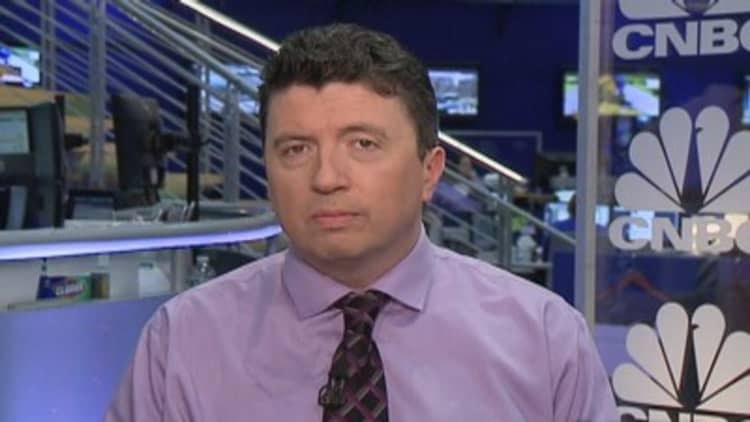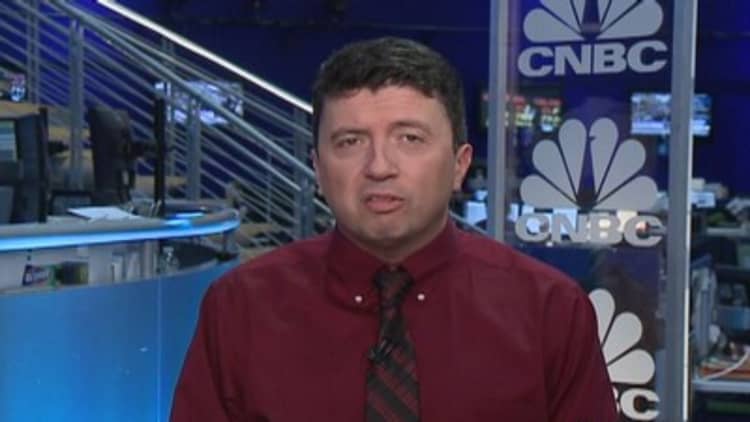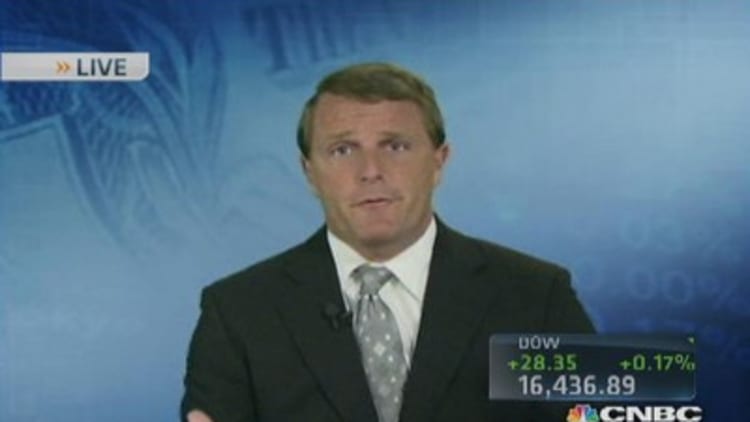
The latest evidence that some people just can't get enough comes from investors who say they're still afraid of the stock market—despite a stunning 180 percent gain over the past five years.
In a survey by Bankrate.com released Monday, fully 73 percent of respondents say they're no more inclined to put capital to work in equities than they were a year ago, even with a low rate of returns on other investments like savings accounts and certificates of deposit.
The number is consistent with the 2013 and 2012 surveys—which saw readings of 76 percent—and comes even though the stock index surged 29 percent last year.

Of course, it all seems counterintuitive until you consider what investors have had to endure over the past 14 years: Two crippling bear markets that saw stocks lose more than half their value, the worst economy since the Great Depression and the perception that market gains are the product of nothing more than rocket fuel from the Federal Reserve that is bound to run out at some point in the not-too-distant future.
"Five years into a bull market, that (sentiment) in itself is pretty unusual," said Brian Lazorishak, senior portfolio manager at Chase Investment Counsel in Charlottesville, Va. "It just reflects how much damage was done to investor psychology during the 2008 period. Not just market performance, but housing, too—having everything hit at the same time really rattled investors."
Read MoreHistorically miserable earnings cycle may not matter
Indeed, the Bankrate survey showed lagging sentiment across a number of indicators. The Financial Security Index slipped and comfort level with debt went from a general feeling of improvement to deterioration.
The survey of 1,010 adults conflicts not only with a sharply rising stock market but also a feeling that 2014 would be the year the economy finally shook off the remnants of a recession that ended in 2009.
"On a day-to-day basis, most of the noise is on the negative side," said Michael Kresh, president of M.D. Kresh Financial Services in Islandia, N.Y. "We're still close to a double-burn (from 2000 and 2008) that most people have never gone through in their lifetimes. That leaves for a great deal of fear."
That's a problem, he said, for investors looking to generate enough cash for their future by investing in low-yielding vehicles.
Read MoreIs this a bubble market? Here's one way to tell
"If you want to ultimately reach your goal, you have to have your money working for you or you will never be able to stop working for your money," Kresh said. "The way to get around this is to show them what staying away from the market means."

Fund flows in 2014 have shown that some investors have taken the message to heart.
Zero-yielding money market accounts have lost 5.2 percent of assets this year and stand around a post-crisis low of $2.58 trillion, according to the Investment Company Institute. Equity mutual funds have seen assets swell by a proportionately higher level, to close to $8 trillion total.
Yet the so-called Great Rotation from bonds into equities, which was supposed to have commenced in 2013, has yet to materialize. Bond mutual funds haven't had a losing month yet in 2014, taking in about $22 billion after suffering slight losses in 2013.
Read MoreThis pushes S&P toward 2,000: Jim Paulsen
"Our clients are mostly high net worth and fairly risk averse. They have significant wealth and want to make money but they want a reasonable risk profile," said Rob Lutts, chief investment officer of Cabot Money Management in Salem, Mass. "They are just like the average investors out there who are looking at the past 12 years and saying this just doesn't feel comfortable to me, I am not a confident equity investor. What will change that? I think four letters: T-I-M-E."
One constant among market pros asked about investor sentiment is that the lack of avid enthusiasm is a contrarian bullish sign, at least for the time being. Conventional wisdom is it takes full investor commitment to end a bull market, and the market appears nowhere near that level. For instance, the latest American Association of Individual Investors weekly poll showed bullishness at 27.2 percent, its lowest level since the same period in 2013.
Lutts said he recently hosted a client reception at a Boston Bruins game and was stunned that "not one asked me about markets or stocks."
"We're so far away from greed that it's shocking given the run we've had," he said. "Twelve months out we could have another 20 percent rise. The reason is valuations are not extraordinary and the Fed is going to keep rates down. They've indicated for another eight to 12 months the party could continue to go on. They're essentially creating another bubble in equities."






